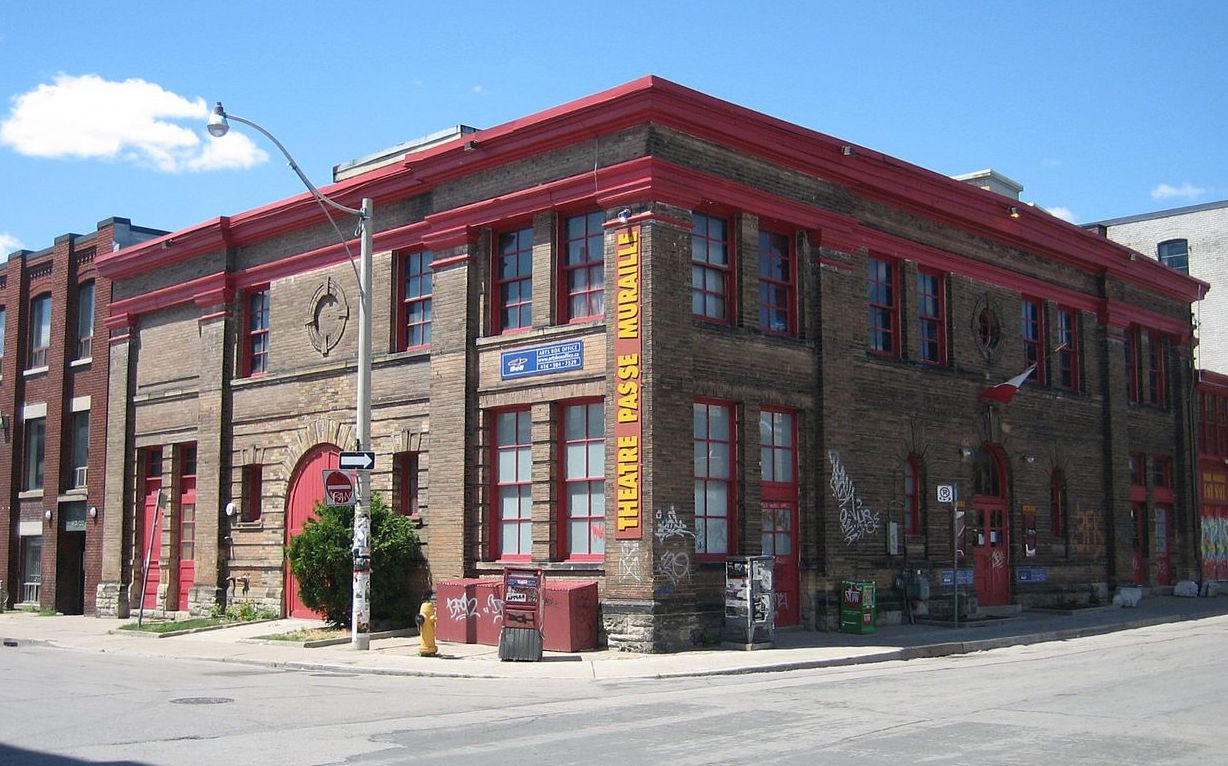A gorgeous, nostalgic new book marks the 50th birthday of Toronto’s Theatre Passe Muraille. Personally, I hadn’t realized how much of my life — about a decade — involved the place. I did five plays there in its early years, two by the “collective creation” form of constructive mayhem, three via the traditional, playwright-suffers-alone-in-garret route.
Sporadic amnesia may be normal in experiencing institutions from inside. They seem more fragmented and ambiguous than outsiders’ accounts, which tend to project a uniform aura. People inside institutions are ambivalent; they feel personal animosities and disappointments along with the highs (an apt term in the case of TPM’s beginnings).
Take Clarke Rogers, an early artistic director, often seized with enthusiasms he couldn’t shut up about, usually concerning theatre or Canada. I’d sometimes put the phone down, walk around the house, pick it up again and he’d still be burbling. But he was immensely generous, alongside the ego, and if he couldn’t afford to do a show he admired, he’d harass some posher theatre into producing it.
After he suicided, at his memorial, there were a few artists who’d returned from big careers in the U.S. but most had never left. Some declined Hollywood opportunities and stayed here largely because they developed loyalties to Canadian culture at TPM, which they couldn’t shake even when they tried. Linda Griffiths, who also died far too early, of cancer, said she knew the precise moment when she made that choice — effectively for failure in the conventional sense, and for doing most of her life’s superb work, underpaid at Passe Muraille.
But if generations now encompass 10 years, as we’re told, that was only the first and TPM has weathered four or five. From the book I learned about recent shows I wish I’d seen, like Bobby Naismith in Becket’s one-person masterpiece, Krapp’s Last Tape. Naismith was made for the part and it would’ve completed a circle for me, since one reason I got into theatre was seeing an early version off-Broadway, with Toronto’s Donald Davis. Davis had built the Crest theatre here in the 1950s. It proudly did Canadian theatre yet only rarely used Canadian scripts. It was like having a body but no voice.
You could imagine Naismith being born at Passe Muraille, in the original location just off Yonge St. (at its sleaziest). He is enormously appealing onstage, by always being himself as well as his character. It’s Brechtian — who as a Marxist insisted that audiences never be fooled into thinking the performer is the part.
Naismith once came to our history play, 1837, and got agitated. I forget why. He returned later, alone, and wrecked its glorious ramp-and-platform set, all logs and corduroy roads, perhaps with an axe. There were often axes around for “populist” plays — the way Pete Seeger kept one onstage for work songs. Director Paul Thompson insisted no one hold it against Bobby. He was family.
Few leaders at places like Passe Muraille went on to head bigger theatres, possibly to their own surprise. TPM struggled and still does. There are two theories about Lesser Institutions. One is that they’re farm teams, grooming personnel for the Major Venues. The other is that, through their integrity and grit, they redeem their societies culturally. The absence of mainstream grandiosity and success can be a sign of their merit. That doesn’t mean everyone who “fails,” in conventional terms, has done great art. But in my experience, in art and elsewhere, yeah, the correlation often holds.
The pastiche quality of the book also reflects the collective emphasis in TPM’s origins. But that’s glib. Theatre itself is inherently collective, unlike novels or poetry. It even includes the audience’s reactions as part of the final “product.”
In an early draft of a scripted play I did there, the protagonist, a theatre critic, says: “I believe that in the future, when films are found only in the ancient history wings of museums, live theatre will still thrive, as it always has.” Who knows, that might even be true.
Rick Salutin is a Canadian novelist, playwright and critic. This column was originally published in the Toronto Star.
Photo: SimonP/Wikimedia Commons
Help make rabble sustainable. Please consider supporting our work with a monthly donation. Support rabble.ca today for as little as $1 per month!




